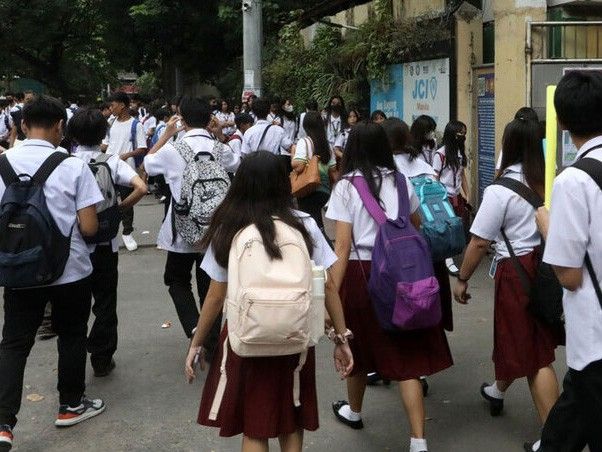DepEd objects to foreign control of schools via Cha-cha, cites national security risk

MANILA, Philippines — The Department of Education on Monday drew the line at allowing foreign “entities” to own schools in the Philippines as proposed in two Charter change resolutions, saying that the entry of 100% foreign-operated schools in basic education will pose a threat to students’ sense of nationality and the country’s national security.
Speaking at the House of Representatives’ Monday hearing on Resolution of Both Houses (RBH) 7, DepEd Undersecretary Omar Romero said that they “strongly oppose” changing the Constitution to lift foreign ownership restrictions in basic education due to its “far-reaching” consequences — including whether DepEd can regulate what’s taught inside fully-foreign schools at all.
“The most basic question is: Will it allow foreign entities to teach?” Romero said, reading DepEd’s position paper on Charter change.
“It is essential that the Philippine curriculum is exclusively implemented by Filipino citizens. This ensures alignment with the specific needs and context of the country,” he added.
The 1987 Constitution currently allows the establishment of international schools only if these are under religious groups and mission boards or if they will intentionally cater to foreign diplomatic personnel and their dependents, as well as foreign temporary residents.
Both RBH 7 in the House and RBH 6 in the Senate seek to amend the fundamental law to allow foreign nationals to fully control and own schools in the country without limits through the insertion of the phrase “unless otherwise provided by law.”
While Sen. Sonny Angara has vowed to retain the foreign ownership restrictions for basic education, which he said was a “societal goal,” it’s unclear whether pro-Cha-cha House leaders share the same position.
Romero said during the hearing that allowing foreign nationals to operate schools in the country may step on DepEd’s mandate of honing students’ “sense of nationality.”
Citing DepEd’s “Matatag” education agenda, Romero said DepEd aims to cultivate students’ sense of nationality through the Makabansa subject. The 1987 Constitution also requires educational institutions to “inculcate patriotism and nationalism,” Romero said.
“This begs the question: How can foreign entities who are not citizens of the Philippines and therefore may lack first-hand experience with Filipino culture and values effectively impart a sense of patriotism and nationalism to learners?” the DepEd official added.
Threat to national security
DepEd also warned against the potential threat to national security on top of the "dilution" of Filipino identity and culture in allowing 100% foreign ownership of schools.
The department considers the proposed removal of limits on the number of foreign students studying in Philippine schools, as well as the lifting of the prohibition on the establishment of exclusive schools for foreigners, as a "great risk" to national security.
This is "due to the lack of provisions for proper supervision and control over aliens in Philippine territory," DepEd said.
Romero also said that the proposed Charter amendment would not just "significantly diminish" DepEd's oversight of school supervision and curriculum offerings, but it would also open up the education sector to security threats.
“This susceptibility to external and foreign influence raises concerns regarding national security as it may expose these educational institutions to infiltration and compromise,” Romero said.
Romero clarified that DepEd objects to the overall lifting of all restrictions in the Constitution and not the entry of foreign educators, who are allowed to teach in the Philippines as long as they comply with DepEd's curriculum and supervision.
“We are not opposing foreign influence provided that it is consistent with the command of the Constitution that we teach our students patriotism and nationalism, and other similar values," Romero said.
DepEd’s position differs from the Commission on Higher Education, which expressed support for the lifting of foreign ownership restrictions in higher education in the same hearing.
CHED Chairperson Popoy De Vera said: “What we have observed in the other ASEAN countries over the past years is that opening up ownership and control of the educational institutions in higher education has made them more competitive in their internationalization efforts.”
An alliance of educators against Charter change, Teachers, Education Workers, and Academics Against Charter Change (TEACH), said that opening schools to full foreign ownership could attract entities looking to “make a quick buck” and further the commercialization in education.
“Rather than open up our schools to foreign ownership, the Philippine government should be reminded that improving the quality of Philippine education is a state obligation,” TEACH said in a position paper.
In a previous Senate hearing, Cynthia Bautista, EDCOM 2 adviser and former dean of the University of the Philippines Diliman College of Social Sciences and Philosophy, warned that the Philippines’ reputation for diploma mills or low-quality schools could attract lower-tier foreign universities once restrictions are lifted.
- Latest
- Trending






























